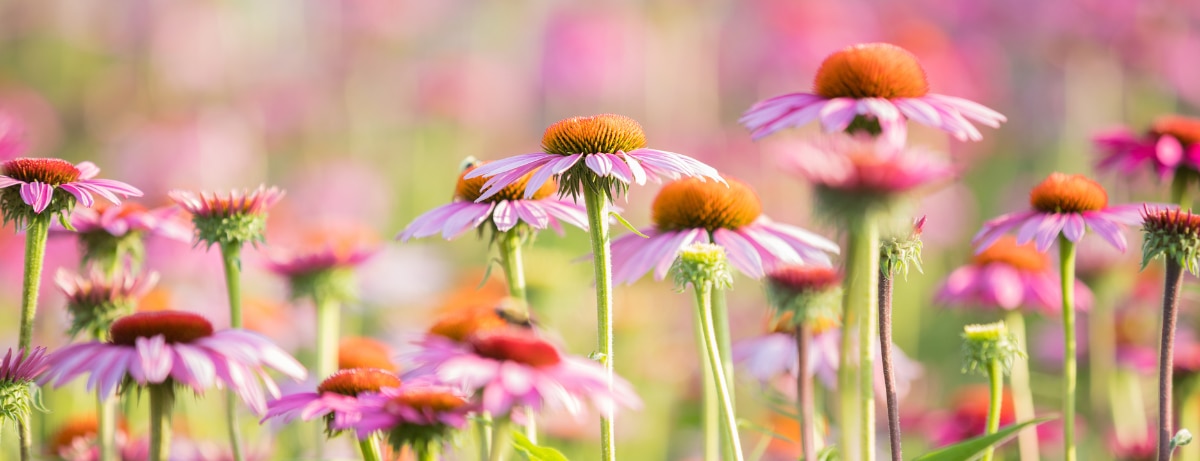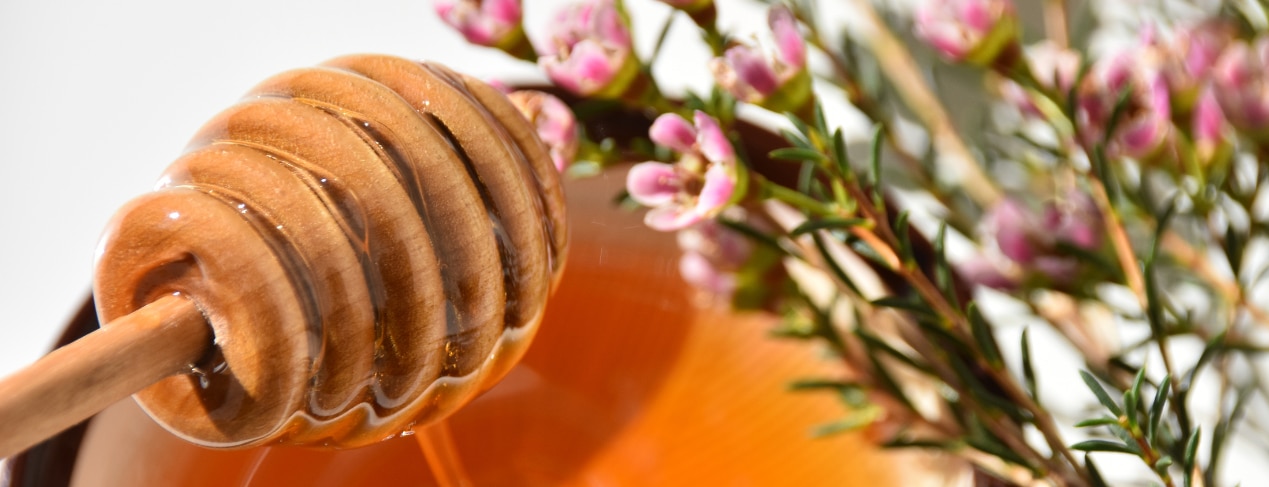15% off €35 OR 20% off €45
Code:SAVE
Echinacea: benefits, dosage, side-effects

What is echinacea and what exactly is it used for? Find out how echinacea benefits your health, when to use it and any possible side effects here.
Summary
1What is echinacea and what does it do?
Echinacea, also known as American coneflower, is a wild herb that grows in the plains of North America.
2What does echinacea do in the body?
Historically, Native Americans used echinacea as a treatment for coughs and colds, snake bites and toothache.
3How much echinacea is safe to take?
The dosage varies depending on which plant species and part of the plant has been used – make sure you read the label carefully.
What is echinacea and what does it do?
Find out all about echinacea, including what it does, the benefits to taking it and how much you might need
Echinacea, also known as American coneflower, is a wild herb that grows in the plains of North America. It has been used as a traditional herbal remedy since the 18th century for a range of conditions from pain relief to snake bites, and even anthrax infections.1,2 Nowadays, echinacea is commonly used to relieve the symptoms of the common cold and flu, and may also help with healing small skin wounds.3
The three types of echinacea used in herbal medicines are:
- echinacea purpurea
- echinacea pallida
- echinacea angustifolia

Benefits of echinacea
What does echinacea do in the body?
Historically, Native Americans used echinacea as a treatment for coughs and colds, snake bites and toothache.5
Today, it’s classified as a traditional herbal remedy by the EU’s Committee on Herbal Medicines for short-term use for the following:
- Relieves symptoms of coughs, common cold and flu
- Soothing minor cuts, grazes and bruises6,7
Echinacea works by stimulating the immune system, thanks to natural plant compounds called polysaccharides and alkamides. At the same time, it has an anti-inflammatory effect inside the body.8
Traditionally, it’s also used to give the immune system an extra boost, but the evidence here is divided. For example, while a 2007 review found that echinacea can decrease the frequency and length of the common cold,9 a 2013 Cochrane review found no statistically significant reduction in the number of colds but did agree there was a small preventative effect.10
If you’re interested in taking echinacea, talk to your GP or a medical herbalist before you do.
Dosage
How much echinacea is safe to take?
The dosage varies depending on which plant species and part of the plant has been used – make sure you read the label carefully.
Experts think it’s most effective when taken at the first signs of a cold, but it may also have an impact when your cold is in full swing.
The following groups should not take echinacea:
- children under 12 years old – there is a risk of serious side effects11
- pregnant and breastfeeding women – scientists are not sure this is safe12,13
- people with diabetes or an immune system disorder, for example auto-immune disease – they should avoid a herb that could further stimulate the immune system14

Side-effects
What are the side-effects of taking echinacea?
Echinacea is considered safe to take although some of the liquids may contain alcohol – if you are dependent on alcohol, or liver disease or epilepsy, look out for the herb in a different form.
For children under 12, the side-effects of taking echinacea are more serious. These include:16
- allergic reactions, like skin swelling and hives
- facial swelling
- shrinking of the airways
- asthma and anaphylactic shock
- ScienceDirect. Echinacea
- Medical News Today. Benefits, uses, and side effects of echinacea
- European Medicines Agency. Echinacea purpurea herba
- As Source 2
- USDA NRCS. Eastern purple coneflower
- Medicines & Healthcare Products Regulatory Agency. Herbal medicines granted a traditional herbal registration
- As Source 3
- Manayi A, Vazirian M, Saeidnia S. Echinacea purpurea: Pharmacology, phytochemistry and analysis methods
- Shah SA, et al. Evaluation of echinacea for the prevention and treatment of the common cold: a meta-analysis
- Karsch-Volk M, et al. Echinacea for preventing and treating the common cold
- NHS. Echinacea allergy warning for children under 12
- Specialist Pharmacy Service. Is it safe to take herbal medicines during pregnancy?
- Drugs and Lactation Database. Echinacea
- As Source 1
- Kigler B. Echinacea
- As Source
The information in this article should not replace medical care. Please check with your GP or healthcare professional before trying any supplements, treatments or remedies.



